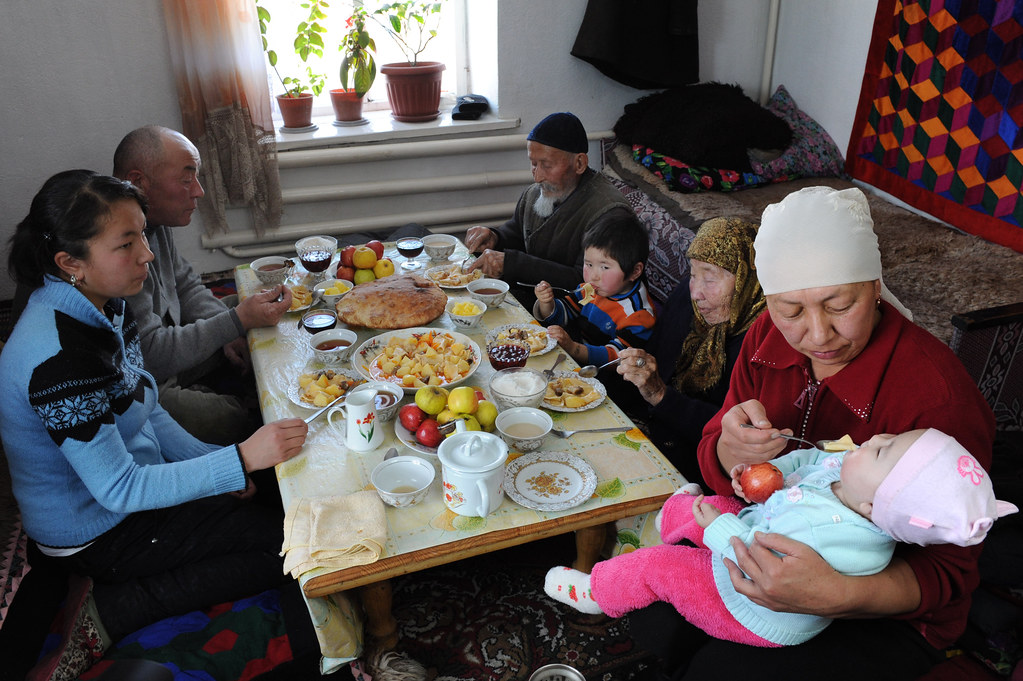COVID-19 SOCIO-ECONOMIC SHOCKS POSING SERIOUS THREAT TO FOOD AND NUTRITION SECURITY OF THE PEOPLE OF THE KYRGYZ REPUBLIC
12 November 2021
Poverty, Food Security and Nutrition Analysis in the context of COVID-19 and the role of Social Protection in the Kyrgyz Republic draws upon data from across the country gathered before and after the pandemic struck. The comparisons show that drops in income have not only reduced demand for food, but also induced shifts in the mix of products consumed, with families eating less nutrient-rich foods, like fruits, vegetables, and animal-sourced foods, and more calorie rich-foods, like bread and sugar.
A profound economic crisis caused by the pandemic has resulted in an increase in newly poor and unemployed people in the Kyrgys Republic. In order to cope, families reported applying different coping strategies that have impacted negatively on their nutrition, health and productivity, and will be difficult to reverse in the future, perpetuating the cycle of poverty and vulnerability.
In addition to ’stress’ coping strategies (e.g. borrowing money to meet food needs), more households had to apply ‘crisis’ and ‘emergency’ type strategies, such as selling assets, reducing spending on essential non-food items, selling property, and asking for humanitarian assistance. The number of households resorting to these coping strategies increased from 12 percent in 2020 to 36 percent in 2021. This translates into a reduced ability to deal with future shocks, reduction of current and future productivity, and the jeopardizing of future livelihoods.
“This important analysis demonstrates the alarming effects of the pandemic on the population’s food and nutrition security, and how food insecurity and malnutrition are closely linked to poverty,” said Michael Huggins, WFP Kyrgyz Republic Officer-in-Charge. “Critical measures need to be taken now to strengthen the government’s approach to social protection to help the families, and the country, fully recover from the socio-economic fallout of COVID-19.”
Some of the recommendations include focusing on income-generating activities and poverty graduation programmes to build people’s resilience; fostering inter-sectoral linkages between social protection and food systems; promoting healthy and diverse diets among the population; and strengthening the design of social benefits to make sure that “no one is left behind.”
The United Nations World Food Programme is the 2020 Nobel Peace Prize Laureate. We are the world’s largest humanitarian organization, saving lives in emergencies and using food assistance to build a pathway to peace, stability and prosperity for people recovering from conflict, disasters and the impact of climate change. Follow WFP on Twitter @WFP_Media and @WFPAsiaPacific and @WFPinKG.
English version of the report
Russian version of the report
For more information please contact:
Almaz Tchoroev, WFP Communications Officer: 0550 577 597 (mobile) or 312 660033 (ext. 2600)






